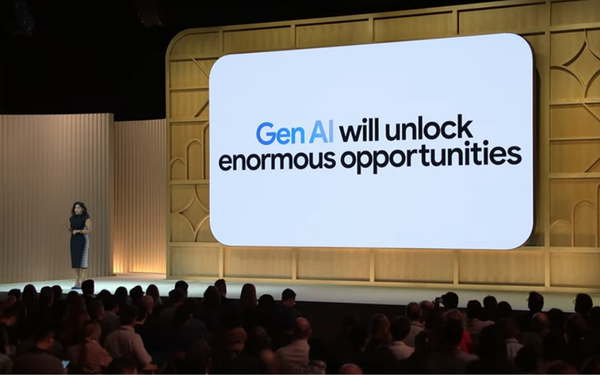
Metrics and measurement to determine
bidding and budgets have become increasingly complex as consumer privacy becomes a major consideration and generative artificial intelligence (GAI) finds its way into all parts of full-funnel
advertising and marketing.
Mike Jacobs, vice president of growth at Etsy, just wants clarity and the ability to fully understand how consumer make decisions when considering and completing a
purchase as they travel through an increasingly complex full-funnel journey.
“Marketers are getting smarter, but we’re asking for more data and what that looks like through
the journey,” he said during a roundtable at Google in New York.
Ads measurement in 2024 is not as simple as it was five years ago. Measurement has become more complex, whether
it’s working with Performance Max (PMax) or YouTube ads. Advertisers having many new media options and media.
advertisement
advertisement
GAI is weaving its way through all of Google's products including
measurement. On Tuesday the company introduced products to measure the outcomes and make smarter decisions by bringing GAI into the experience -- one of several announcements today at Google Marketing Live 2024.
Measurement Diagnostics gives advertisers the ability to see what’s working and
what’s not as they give google data from various sources. Advertisers can start to ask questions and get insights back. It’s rolling out now.
“AI needs a signal and
measurement is one of the most important signals that advertisers give us about what matters to their business,” he said.
Measurement is not the end point, but the starting point for an
advertisers next campaign. A privacy feature in Google ads will now limit how the data can be used. Advertisers control the feature. It will become available later this year.
And given the
increase in channels, marketers are using marketing mix models (MMM), but have become frustrated how the old type of MMMs work. Google has embarked on a new project called Meridian, an open source MMM
available to marketers later this year.
On Tuesday the company also announced plans to test search and shopping ads in AI Overviews in the U.S.
The ads will match to the information in
AI Overview. For example, someone querying how to remove wrinkles from clothes might receive back an AI-generated summary of tips sourced from the web, with a carousel of ads for sprays to help remove
wrinkles.
Google shared few details about the ad format, but the company said it will clearly identify the AI Overview ads with a sponsored label when relevant to the query and the
information.
AI Overview will draw on ads from advertisers’ existing campaigns, so they can opt out of the experiment if they choose.
New features in PMax powered by GAI also
include ways to improve conversions. Advertisers who have added to PMax to search campaigns using Broad Match and Smart Bidding see an average 27% increase in conversions.
A Profit
Optimization feature now makes it a new goal for PMax and standard Shopping campaigns to improve conversions.
For example, consider two pairs of sunglasses, bother retail for $50, but one
costs $15 to produce and other $25.
Smart bidding, Google said, can help advertisers maximize the profit with data from cart-level conversions or cost of goods sold. Advertisers who use Profit
Optimization and Smart Bidding have seen a 15% uplift compared with revenue only bidding.